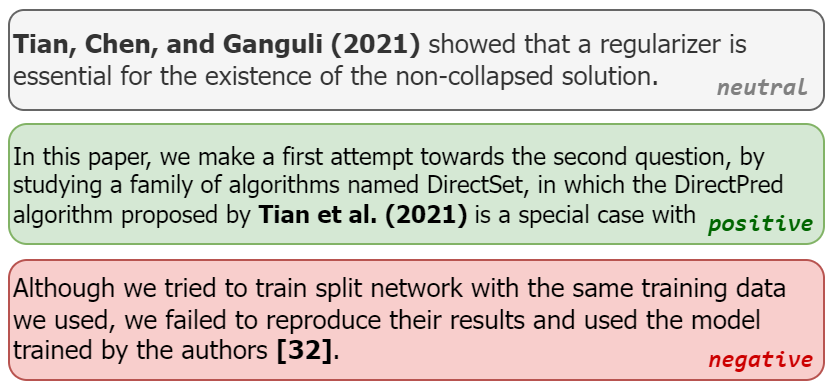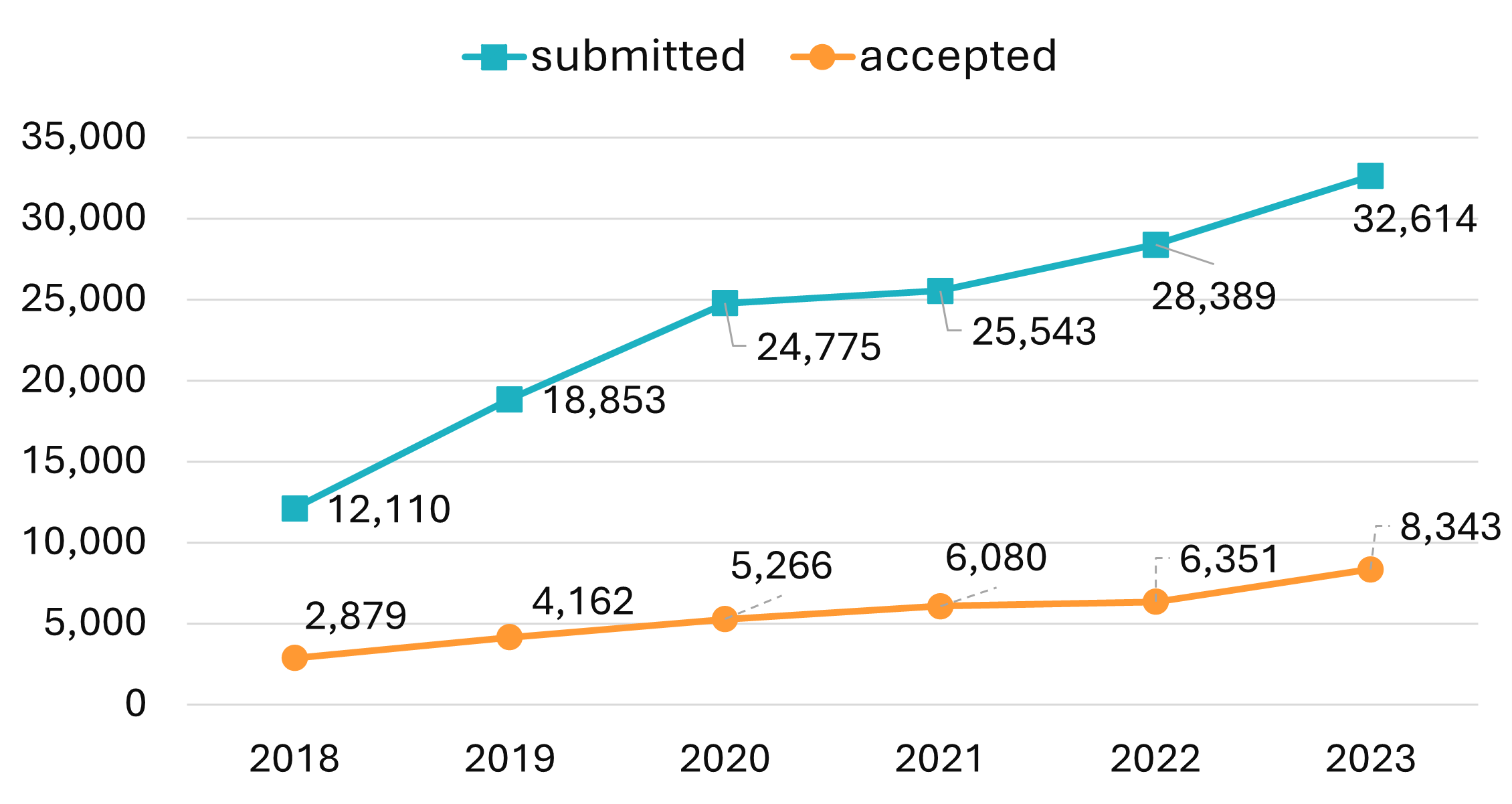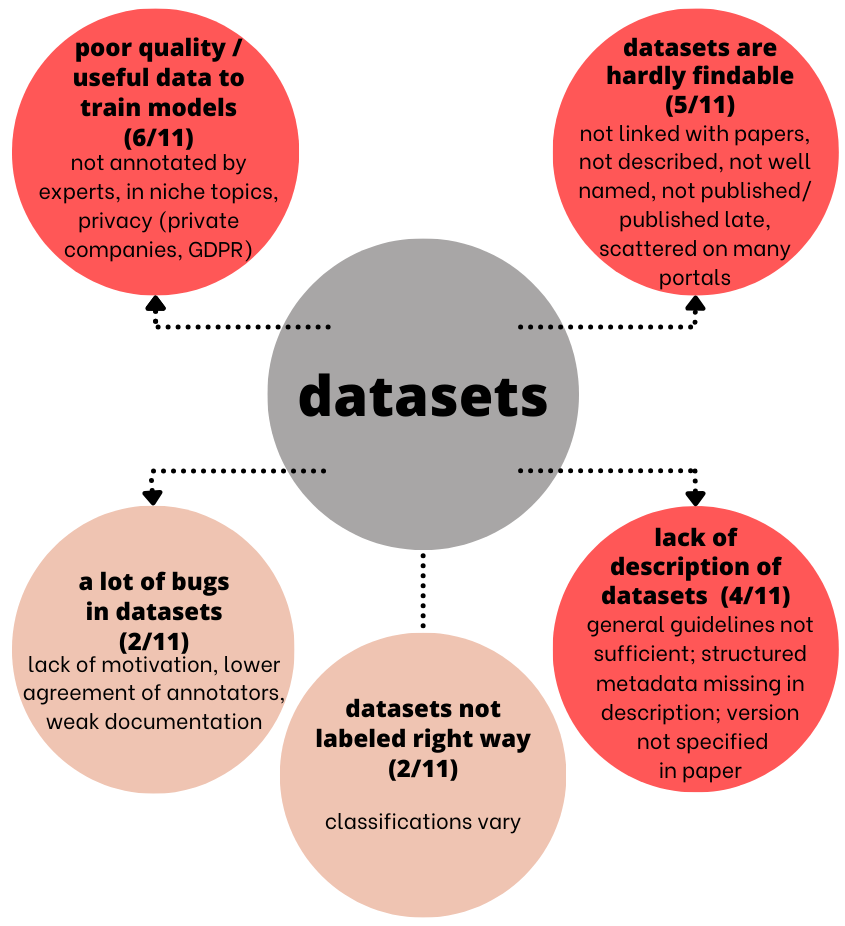Can citations tell us about a paper's reproducibility? A case study of machine learning papers

0

Sign in to get full access
Overview
- This paper investigates whether citations can provide insights into the reproducibility of machine learning papers.
- The authors conduct a case study on a dataset of machine learning papers to explore this relationship.
- They analyze factors like citation counts, publication venues, and paper characteristics to better understand reproducibility issues in the field.
Plain English Explanation
The researchers wanted to see if the number of times a machine learning research paper is cited by other studies could tell us something about how reproducible or reliable the original paper's findings are. They looked at a collection of machine learning papers and examined things like how many times each paper was cited, where it was published, and what kind of information it contained.
The goal was to uncover any connections between these citation-related factors and the likelihood that the original paper's results could be reproduced or replicated by other researchers. This is an important issue in machine learning, where there have been concerns about the reproducibility of published findings.
By analyzing the citation patterns of machine learning papers, the researchers hoped to gain insights that could help improve the overall reproducibility and reliability of research in this rapidly evolving field.
Technical Explanation
The authors collected a dataset of over 30,000 machine learning papers published between 2010-2020. They then analyzed various features of these papers, including:
- Citation counts: How many times each paper was cited by other published works
- Publication venues: The conferences or journals where the papers were originally published
- Paper characteristics: The length, number of authors, code/data availability, and other attributes of the individual papers
The goal was to investigate whether these citation-related factors could serve as proxies for assessing the reproducibility of the machine learning research. The authors hypothesized that factors like higher citation counts, publication in prestigious venues, and the presence of supporting code/data might indicate a higher degree of reproducibility.
Through statistical analysis of the dataset, the researchers uncovered several interesting findings. For example, they found that papers with more citations tended to have higher rates of successful replication, suggesting that citation counts could be a useful signal of reproducibility. However, they also noted that other paper characteristics, like code/data availability, were not as strongly correlated with replicability.
Critical Analysis
The authors acknowledge several limitations in their study. For instance, they note that their reliance on citation data alone may not provide a complete picture of reproducibility, as there are many other factors that can influence whether a study's findings are successfully replicated.
Additionally, the authors point out that their analysis is based on a specific dataset of machine learning papers, and the results may not generalize to other scientific domains. There is a need for further research to examine the relationship between citations and reproducibility across a wider range of scientific disciplines.
Another potential concern is the inherent challenges in assessing reproducibility, as it can be a subjective and context-dependent determination. The authors acknowledge that their approach of using citation metrics as a proxy for reproducibility may not capture the full complexity of the issue.
Conclusion
This study represents an interesting attempt to leverage citation data to gain insights into the reproducibility of machine learning research. The authors' finding that higher citation counts are associated with increased replicability suggests that citation metrics could potentially serve as a useful, though imperfect, signal of reproducibility.
However, the authors also highlight the need for more robust and multi-faceted approaches to assessing reproducibility in science. As the field of machine learning continues to evolve rapidly, ensuring the reliability and reproducibility of published findings will be crucial for building trust and advancing the state of the art.
This summary was produced with help from an AI and may contain inaccuracies - check out the links to read the original source documents!
Related Papers


0
Can citations tell us about a paper's reproducibility? A case study of machine learning papers
Rochana R. Obadage, Sarah M. Rajtmajer, Jian Wu
The iterative character of work in machine learning (ML) and artificial intelligence (AI) and reliance on comparisons against benchmark datasets emphasize the importance of reproducibility in that literature. Yet, resource constraints and inadequate documentation can make running replications particularly challenging. Our work explores the potential of using downstream citation contexts as a signal of reproducibility. We introduce a sentiment analysis framework applied to citation contexts from papers involved in Machine Learning Reproducibility Challenges in order to interpret the positive or negative outcomes of reproduction attempts. Our contributions include training classifiers for reproducibility-related contexts and sentiment analysis, and exploring correlations between citation context sentiment and reproducibility scores. Study data, software, and an artifact appendix are publicly available at https://github.com/lamps-lab/ccair-ai-reproducibility .
Read more5/8/2024


0
What is Reproducibility in Artificial Intelligence and Machine Learning Research?
Abhyuday Desai, Mohamed Abdelhamid, Nakul R. Padalkar
In the rapidly evolving fields of Artificial Intelligence (AI) and Machine Learning (ML), the reproducibility crisis underscores the urgent need for clear validation methodologies to maintain scientific integrity and encourage advancement. The crisis is compounded by the prevalent confusion over validation terminology. Responding to this challenge, we introduce a validation framework that clarifies the roles and definitions of key validation efforts: repeatability, dependent and independent reproducibility, and direct and conceptual replicability. This structured framework aims to provide AI/ML researchers with the necessary clarity on these essential concepts, facilitating the appropriate design, conduct, and interpretation of validation studies. By articulating the nuances and specific roles of each type of validation study, we hope to contribute to a more informed and methodical approach to addressing the challenges of reproducibility, thereby supporting the community's efforts to enhance the reliability and trustworthiness of its research findings.
Read more7/16/2024
📊

0
Integrating measures of replicability into scholarly search: Challenges and opportunities
Chuhao Wu, Tatiana Chakravorti, John Carroll, Sarah Rajtmajer
Challenges to reproducibility and replicability have gained widespread attention, driven by large replication projects with lukewarm success rates. A nascent work has emerged developing algorithms to estimate the replicability of published findings. The current study explores ways in which AI-enabled signals of confidence in research might be integrated into the literature search. We interview 17 PhD researchers about their current processes for literature search and ask them to provide feedback on a replicability estimation tool. Our findings suggest that participants tend to confuse replicability with generalizability and related concepts. Information about replicability can support researchers throughout the research design processes. However, the use of AI estimation is debatable due to the lack of explainability and transparency. The ethical implications of AI-enabled confidence assessment must be further studied before such tools could be widely accepted. We discuss implications for the design of technological tools to support scholarly activities and advance replicability.
Read more5/6/2024


0
AI Research is not Magic, it has to be Reproducible and Responsible: Challenges in the AI field from the Perspective of its PhD Students
Andrea Hrckova, Jennifer Renoux, Rafael Tolosana Calasanz, Daniela Chuda, Martin Tamajka, Jakub Simko
With the goal of uncovering the challenges faced by European AI students during their research endeavors, we surveyed 28 AI doctoral candidates from 13 European countries. The outcomes underscore challenges in three key areas: (1) the findability and quality of AI resources such as datasets, models, and experiments; (2) the difficulties in replicating the experiments in AI papers; (3) and the lack of trustworthiness and interdisciplinarity. From our findings, it appears that although early stage AI researchers generally tend to share their AI resources, they lack motivation or knowledge to engage more in dataset and code preparation and curation, and ethical assessments, and are not used to cooperate with well-versed experts in application domains. Furthermore, we examine existing practices in data governance and reproducibility both in computer science and in artificial intelligence. For instance, only a minority of venues actively promote reproducibility initiatives such as reproducibility evaluations. Critically, there is need for immediate adoption of responsible and reproducible AI research practices, crucial for society at large, and essential for the AI research community in particular. This paper proposes a combination of social and technical recommendations to overcome the identified challenges. Socially, we propose the general adoption of reproducibility initiatives in AI conferences and journals, as well as improved interdisciplinary collaboration, especially in data governance practices. On the technical front, we call for enhanced tools to better support versioning control of datasets and code, and a computing infrastructure that facilitates the sharing and discovery of AI resources, as well as the sharing, execution, and verification of experiments.
Read more8/14/2024